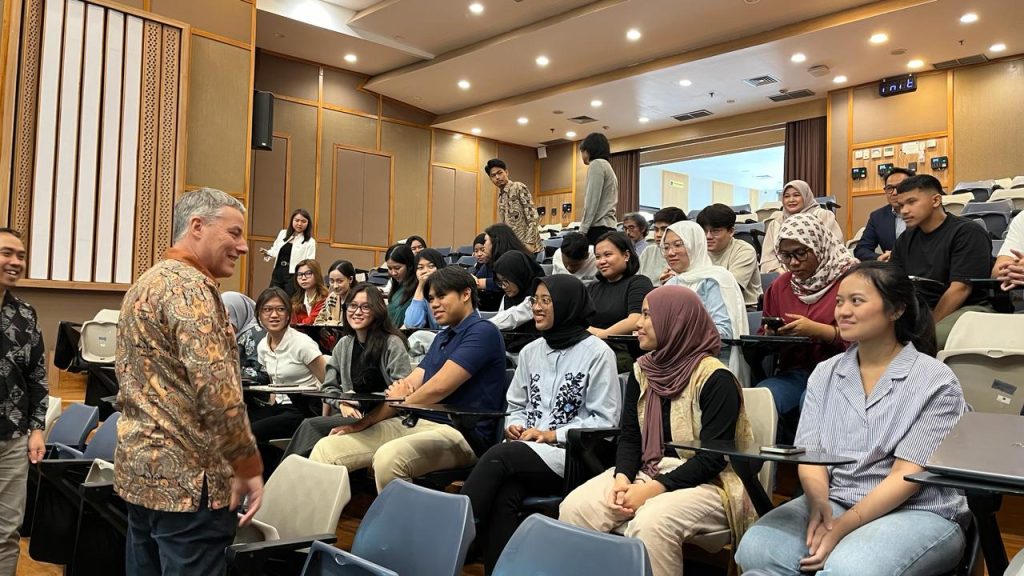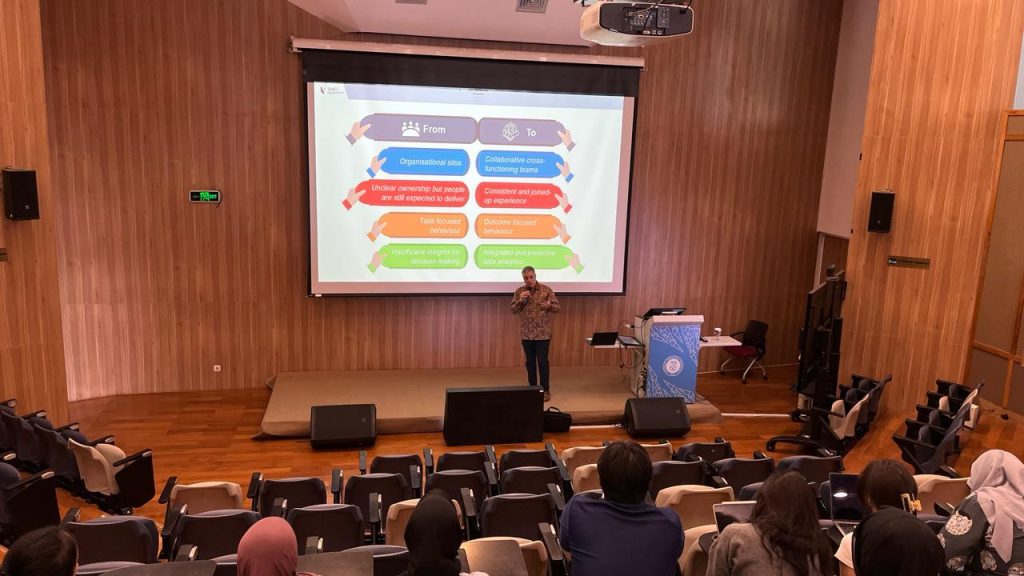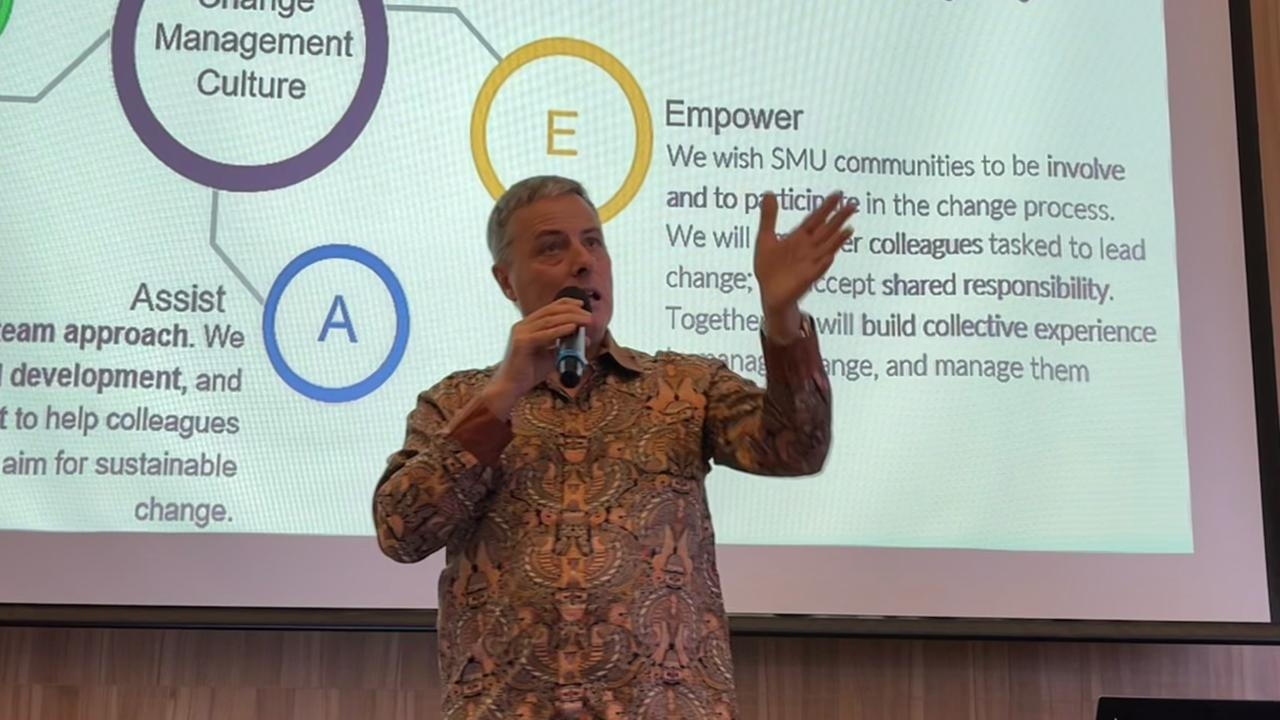Hugh Edmiston, Senior Vice President of Singapore Management University (SMU), highlighted the significant challenges universities face due to evolving demands in higher education, necessitating a delicate balance of diverse interests.
“Universities are not businesses, but we must adopt a more business-oriented approach in the future,” Edmiston remarked following his guest lecture at the SBM ITB on Thursday (14/3).
One notable challenge is the influence of business on academic freedom. Researchers are increasingly expected to prioritize addressing industry problems over pursuing their individual academic interests. Furthermore, universities are now tasked with addressing social issues, further complicating the balance between meeting evolving demands and maintaining academic integrity. Universities worldwide share these challenges.
“Ultimately, everyone aims for student satisfaction and success,” Edmiston emphasized, underscoring the universal goal of higher education institutions.
Edmiston’s lecture at SBM ITB centred on leadership for change in higher education, alongside efforts to strengthen relations between ITB and SMU. He outlined key qualities leaders must possess to drive change, including experience, a proven track record, openness to learning from mistakes, honesty, and a willingness to listen. Additionally, he stressed the importance of confidence in decision-making, as leaders who appear hesitant can sow doubt among team members.
One cultural difference Edmiston noted was in risk-taking behaviour. British individuals are more willing to take risks than singaporeans, who often seek more data before making decisions. He advocated for a consensus-based change management strategy influenced by decision-makers risk appetite.
According to Edmiston, successful change management hinges on having a clear vision and engaging all relevant stakeholders. Leaders must effectively communicate the benefits of change to garner support. Throughout the change process, leaders should train their teams in change management tools and techniques and hold them accountable for implementation results. Successful changes warrant celebration, while less successful ones should prompt evaluation and reflection.






